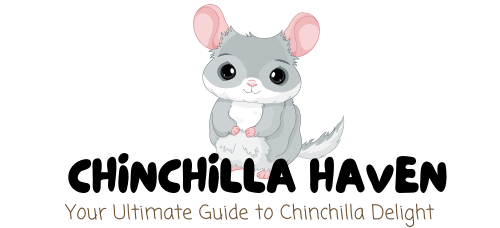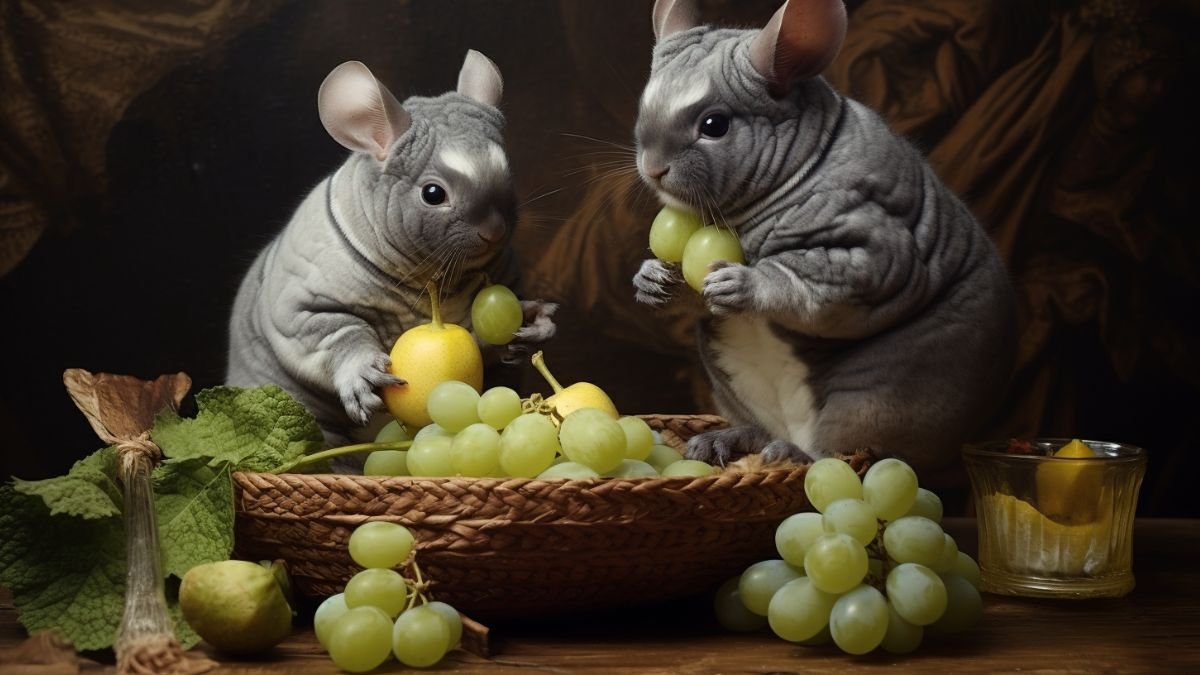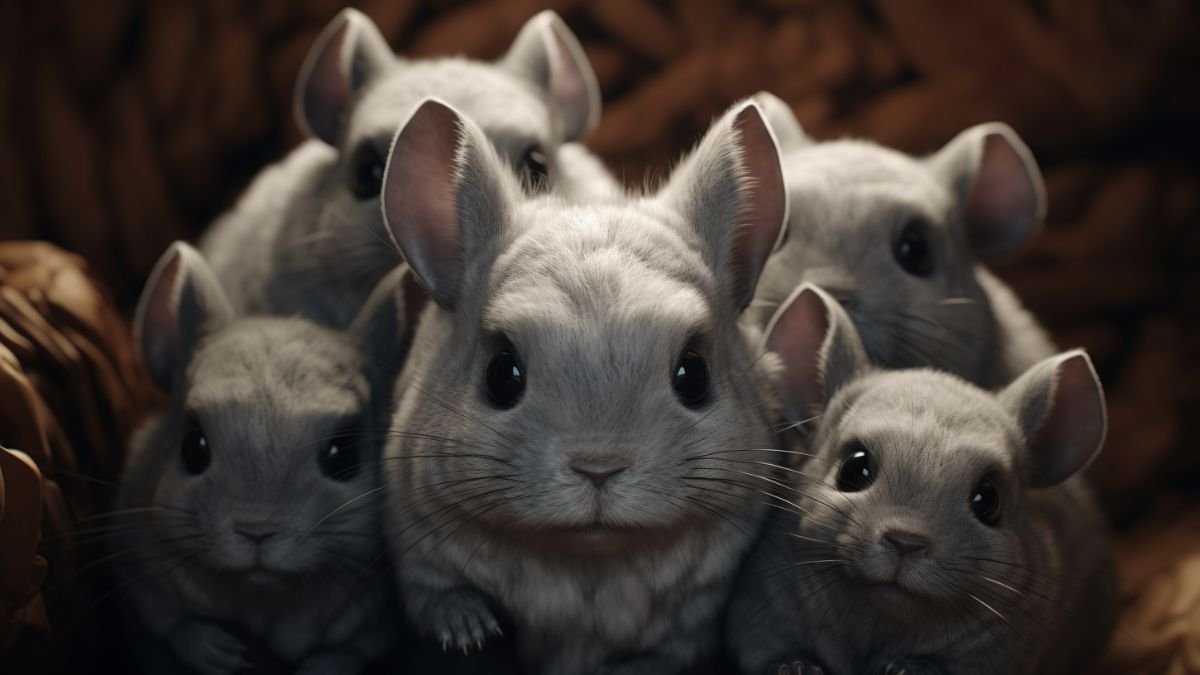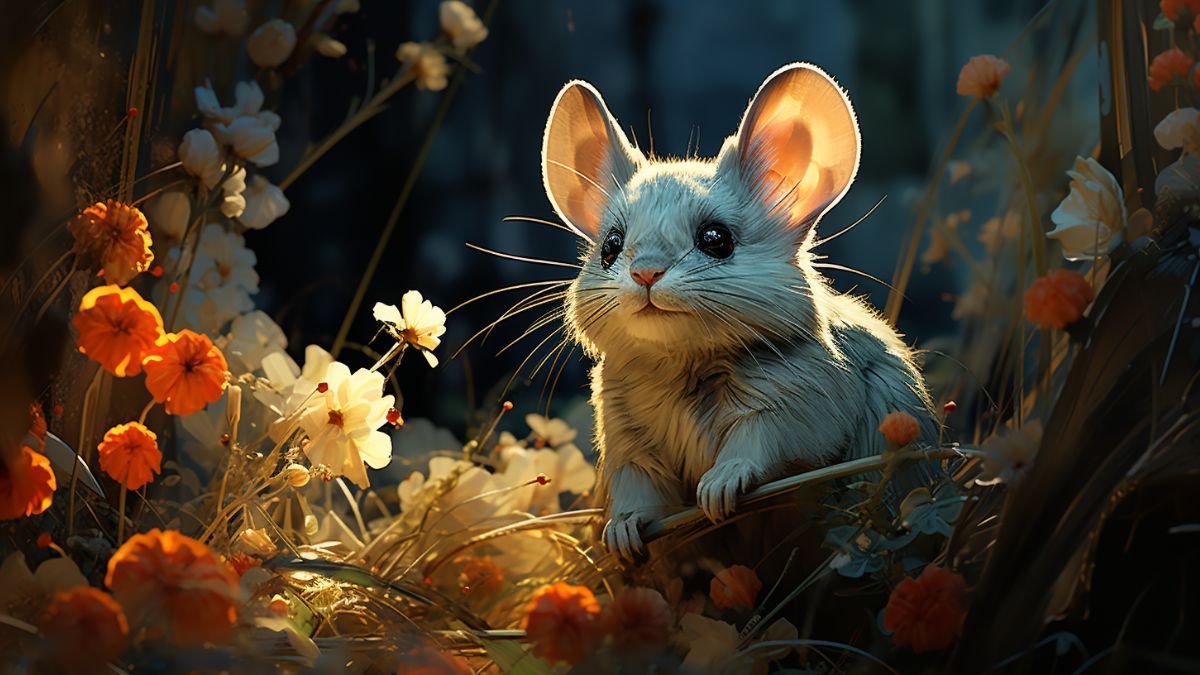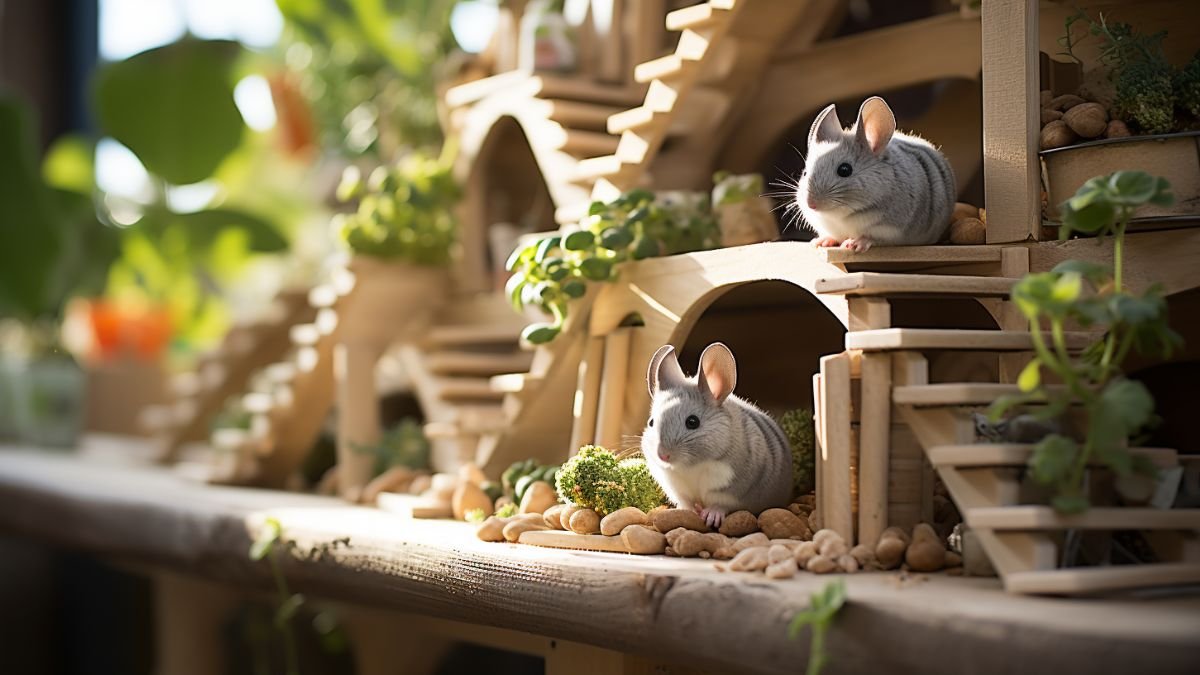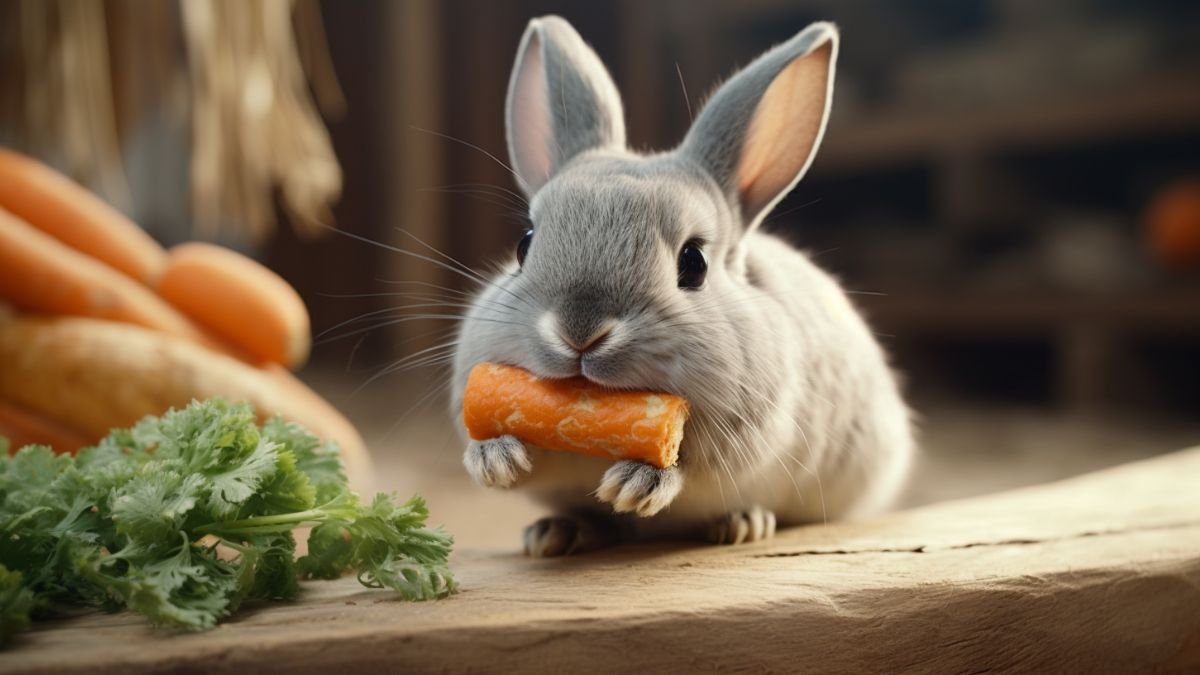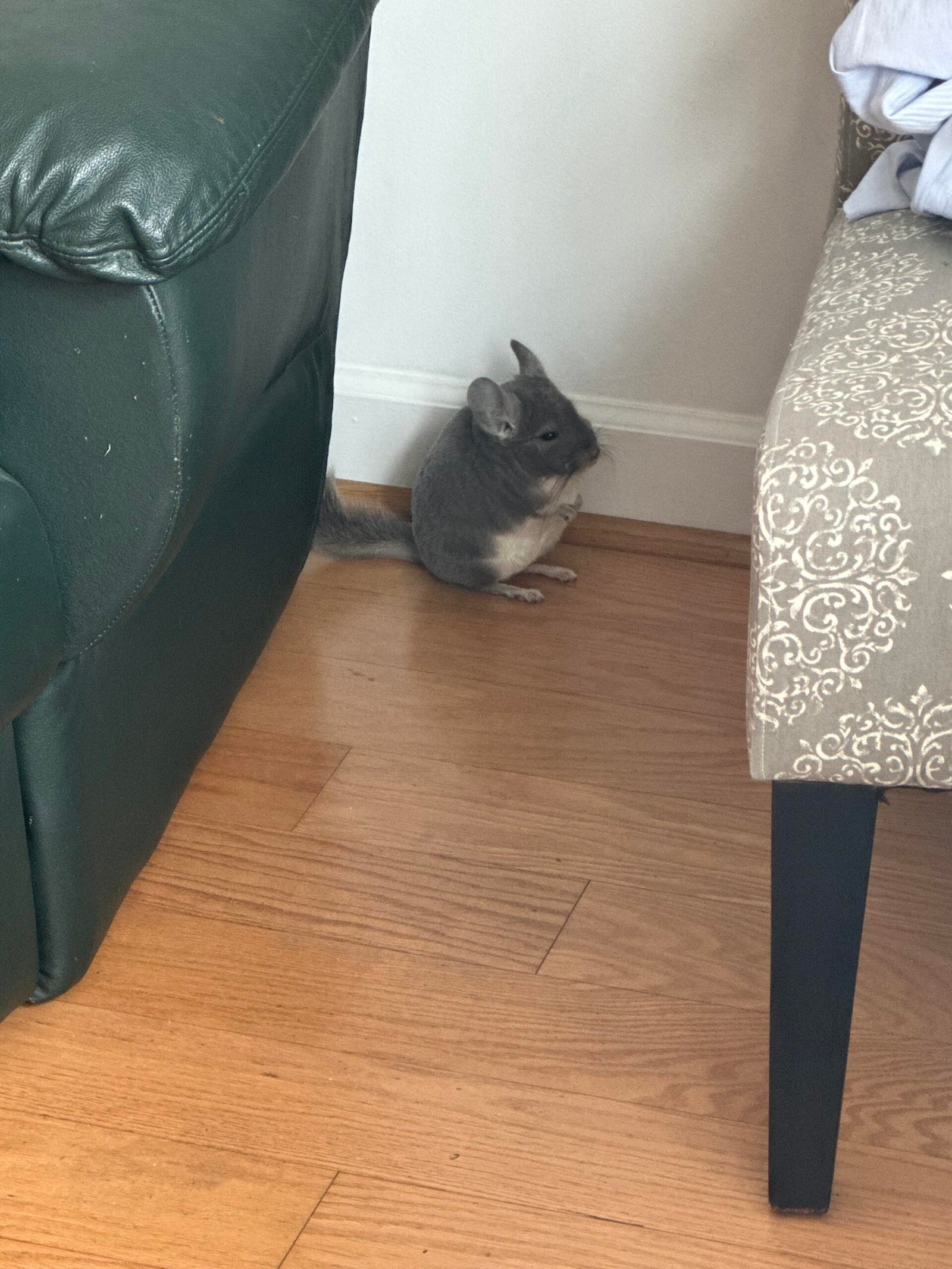Are you wondering if you can safely share rose petals with your chinchilla? As a caring pet owner, you want to give your furry friend treats that are both tasty and safe.
But not all plants and flowers are good for chinchillas, and some can even harm them. So, can chinchillas eat rose petals? Keep reading to discover the surprising answer and learn how to keep your chinchilla happy and healthy with the right diet.
Your pet’s well-being depends on knowing what’s safe, and this guide will help you make the best choices.
Chinchilla Diet Basics
Chinchillas need a special diet to stay healthy and happy. Their digestive systems are sensitive. They require food high in fiber and low in moisture. Proper nutrition helps keep their teeth and gut in good shape.
A good chinchilla diet mainly consists of hay and pellets. These provide the right balance of nutrients. Fresh water should always be available. Treats must be given carefully and in small amounts.
Hay: The Foundation Of Their Diet
Hay is essential for chinchillas. It helps wear down their teeth, which grow continuously. Timothy hay is the best choice. It is high in fiber and low in calories.
Hay also supports healthy digestion. Chinchillas should have unlimited access to fresh hay daily.
Pellets: Balanced Nutrition
Pellets provide vitamins and minerals chinchillas need. Use pellets made specifically for chinchillas. Avoid mixes with seeds or dried fruits. These can cause digestive problems.
Feed pellets in small portions. Overfeeding can lead to obesity and health issues.
Treats And Safe Extras
Treats should be rare and healthy. Small pieces of dried rose petals might seem nice. But they can cause problems if given often or in large amounts.
Fresh vegetables and fruits are usually too moist. They can upset chinchillas’ stomachs. Always research treats before offering them.
Nutritional Value Of Rose Petals
Rose petals are more than just pretty flowers. They contain nutrients that can be good for some animals. Understanding their nutritional value helps decide if chinchillas can eat them safely.
Rose petals have vitamins, minerals, and antioxidants. These nutrients support health and may boost the immune system. They also provide fiber, which aids digestion.
Vitamins Found In Rose Petals
Rose petals contain vitamin C, which helps protect cells. They also have small amounts of vitamin A. These vitamins support skin and eye health.
Minerals Present In Rose Petals
Rose petals offer minerals like calcium and potassium. Calcium is important for strong bones. Potassium helps with muscle function and heart health.
Antioxidants In Rose Petals
Antioxidants in rose petals fight harmful molecules in the body. They help reduce inflammation and support overall wellness.
Fiber Content And Digestive Benefits
Rose petals contain fiber that aids in digestion. Fiber helps keep the gut healthy and promotes regular bowel movements.
Are Rose Petals Safe For Chinchillas?
Rose petals are safe for chinchillas in small amounts. They can enjoy the petals as a treat but not too often. Always check for pesticides before offering them.
Rose petals seem gentle and pretty. Many pet owners wonder if chinchillas can eat them safely.
Chinchillas have very sensitive stomachs. Their diet must be simple and natural. Rose petals are not toxic to chinchillas. They do not contain harmful chemicals or poisons.
Still, rose petals are not a natural food for chinchillas. Their digestive systems are built for hay, pellets, and some leafy greens. Eating too many rose petals can upset their stomachs. It may cause diarrhea or discomfort.
Some rose petals have pesticides or sprays. These chemicals can harm your chinchilla. Always choose organic or untreated petals if you want to offer a small amount.
Offer rose petals only as an occasional treat. A tiny pinch is enough. Watch your chinchilla closely for any signs of illness after eating petals.
Remember, moderation is key. Rose petals should never replace the main diet. Clean water, hay, and proper pellets are most important.
Potential Risks Of Feeding Rose Petals
Rose petals may look safe and pretty, but they can pose risks for chinchillas. Not all parts of plants are good for chinchillas to eat. Rose petals might contain chemicals or pesticides harmful to your pet.
Even natural substances in rose petals can upset a chinchilla’s stomach. Their digestive systems are sensitive and react badly to new foods. Small amounts can cause diarrhea or stomach pain. Always think twice before offering rose petals.
Possible Toxicity And Pesticides
Rose petals may have pesticides or chemicals from farming. These poisons can harm your chinchilla’s health. Pesticides can cause poisoning, which leads to weakness or worse. Always choose pesticide-free plants if you want to try feeding petals.
Digestive Problems In Chinchillas
Chinchillas have delicate stomachs. Eating rose petals might cause diarrhea or cramps. Their gut cannot process many flower parts well. Digestive upset can lead to dehydration and serious health issues.
Allergic Reactions
Some chinchillas may be allergic to rose petals. Allergies can cause itching, swelling, or breathing trouble. Watch your pet closely after any new food. Stop feeding immediately if you see any signs of allergy.
Choking Hazard
Rose petals can be dry and flaky. This dryness can cause choking or blockages. Always cut petals into small pieces. Never give whole petals to avoid choking risks.
Signs Of Allergic Reactions
Chinchillas are delicate pets. Their bodies react differently to many foods. Rose petals may cause allergic reactions in some chinchillas. Spotting these signs early helps keep your pet safe.
Allergic reactions can affect a chinchilla’s skin, breathing, or digestion. Knowing what to watch for is important. Careful observation helps prevent serious health issues.
Skin Irritation And Redness
Skin irritation is a common sign of allergy. Look for redness or swelling on the chinchilla’s body. The chinchilla may scratch or bite the irritated area. Dry, flaky patches can also appear on the skin.
Swelling Around The Face And Eyes
Swelling near the eyes, nose, or mouth is a warning sign. It can make your chinchilla uncomfortable. The eyes may water or look puffy. This swelling needs quick attention to avoid worsening.
Respiratory Problems
Watch for trouble breathing or wheezing sounds. Sneezing or coughing may also happen. These signs indicate the chinchilla is struggling to breathe. Respiratory issues require immediate care from a vet.
Digestive Upset
Allergies can cause stomach problems in chinchillas. Diarrhea or vomiting may occur soon after eating rose petals. A chinchilla might lose interest in food. Digestive upset can lead to dehydration if not treated.
Behavioral Changes
A chinchilla feeling unwell may act differently. It might become restless or hide more than usual. Reduced activity or unusual aggression can also appear. These changes hint at discomfort or pain.
How To Introduce New Foods
Introducing new foods to your chinchilla needs care and patience. Sudden changes can upset their sensitive stomach. New foods must be added slowly to watch for any reactions. This helps keep your pet safe and healthy.
Start With Small Amounts
Give your chinchilla a tiny piece of the new food first. Small bites reduce the chance of digestive trouble. Observe your chinchilla for any signs of discomfort or allergies.
Wait And Watch
After offering the new food, wait at least 24 hours. Look for changes in behavior or digestion. If your chinchilla seems fine, you can increase the amount a little bit.
Mix With Regular Food
Blend the new food with their usual diet. This helps your pet get used to the taste and texture. Gradually increase the new food portion over several days.
Know Which Foods Are Safe
Only introduce foods known to be safe for chinchillas. Some plants and flowers can be harmful. Research or ask a vet before trying rose petals or other treats.
Alternatives To Rose Petals
Rose petals might look nice but they are not the best choice for chinchillas. Some flowers can upset their stomach or cause harm. It is safer to offer alternatives that are healthy and tasty. These options provide variety and nutrients for your pet.
Safe Edible Flowers
Chamomile and hibiscus flowers are gentle on chinchilla digestion. Both have a mild taste and are often used in small amounts. These flowers add fiber and some vitamins to their diet. Always give fresh or dried flowers without pesticides.
Fresh Vegetables
Carrot tops, dandelion greens, and kale make good treats. These veggies have fiber and help with digestion. Feed only small pieces to avoid stomach problems. Avoid vegetables that are too wet or sugary.
Hay Varieties
Timothy hay is the main food for chinchillas. Orchard grass hay can be offered for variety. Hay helps keep their teeth healthy and supports digestion. Always provide fresh, clean hay to keep them happy.
Herbs For Flavor
Parsley, basil, and cilantro are safe herbs to try. They add taste and some nutrients to the diet. Use small amounts at first to see how your chinchilla reacts. Avoid any herbs that cause allergies or discomfort.
Common Foods To Avoid
Chinchillas have delicate digestive systems. Some foods can harm them seriously. Knowing which foods to avoid helps keep chinchillas safe and healthy.
Many common foods look harmless but cause stomach problems or toxicity. Feeding the wrong foods may lead to illness or worse. Always check before offering any new treat.
Foods High In Sugar
Sugar can upset a chinchilla’s stomach quickly. Candy, chocolate, and fruit juices are dangerous. These foods cause diarrhea and digestive pain.
Fatty And Fried Foods
Fatty snacks like chips or fried treats are bad. They cause obesity and liver problems. Chinchillas do not digest fats well.
Toxic Plants And Flowers
Some plants contain poisons that harm chinchillas. Avoid lilies, daffodils, and rhododendrons. Even small amounts can be deadly.
Rose Petals
Rose petals are not toxic but should be given carefully. Pesticides or chemicals on petals can cause illness. Always use organic, clean petals in small amounts.
Dairy Products
Chinchillas cannot digest milk or cheese. Dairy causes gas and bloating. Avoid all dairy to keep your pet safe.
Tips For A Balanced Chinchilla Diet
Chinchillas need a diet that keeps them healthy and happy. Their digestive systems are sensitive. Feeding them the right foods helps avoid health problems. A balanced diet includes hay, pellets, and safe treats. Understanding what chinchillas can eat supports their well-being.
Rose petals can be a treat, but only in small amounts. It is important to know which foods are safe and nutritious. This section shares tips to create a healthy diet plan for your chinchilla.
Provide Unlimited Fresh Hay
Hay should be the main part of a chinchilla’s diet. It helps digestion and keeps teeth healthy. Offer fresh, clean hay every day. Timothy hay is a popular choice. Avoid moldy or dusty hay to prevent illness.
Use High-quality Pellets
Pellets provide essential vitamins and minerals. Choose pellets made specifically for chinchillas. Feed the right amount as stated on the package. Do not overfeed pellets to avoid obesity and digestive issues.
Offer Fresh Water Daily
Clean water is vital for chinchilla health. Change water every day to keep it fresh. Use a water bottle with a sipper tube. Avoid bowls that can get dirty quickly.
Limit Treats Like Rose Petals
Rose petals are safe but only as an occasional treat. Too many treats can cause stomach upset. Offer small amounts no more than once a week. Always check if the petals are pesticide-free and clean.
Avoid Harmful Foods
Never feed chinchillas chocolate, nuts, or seeds. Avoid fruits and vegetables with high moisture. These can cause diarrhea and other health problems. Stick to chinchilla-safe foods to keep them healthy.
Frequently Asked Questions
Can Chinchillas Safely Eat Rose Petals?
Yes, chinchillas can eat rose petals in small amounts if they are clean and pesticide-free.
Are Rose Petals Nutritious For Chinchillas?
Rose petals offer little nutrition but can be a tasty occasional treat for chinchillas.
How Often Can Chinchillas Eat Rose Petals?
Limit rose petals to once or twice a week to avoid digestive upset in chinchillas.
What Parts Of The Rose Can Chinchillas Eat?
Chinchillas should only eat the soft petals, avoiding stems and leaves which can harm them.
Can Eating Rose Petals Cause Health Issues In Chinchillas?
Eating too many rose petals can cause stomach upset or diarrhea in chinchillas.
Should Rose Petals Be Fresh Or Dried For Chinchillas?
Fresh, pesticide-free rose petals are best; dried petals may lose nutrients and flavor.
Can Chinchillas Eat Rose Petals With Pesticides?
No, rose petals treated with pesticides or chemicals are unsafe for chinchillas.
What Are Safe Alternatives To Rose Petals For Chinchillas?
Safe treats include hay, fresh herbs, and small amounts of fruits like apple slices.
Conclusion
Rose petals can be a safe treat for chinchillas, but only in small amounts. Always check for pesticides or chemicals before offering them. Too many petals might upset your pet’s stomach. Fresh, clean petals are best to avoid any health risks.
Remember, chinchillas need a balanced diet to stay healthy and happy. Treats like rose petals should never replace their main food. Watch your chinchilla’s reaction after feeding petals to ensure they feel good. Careful feeding keeps your chinchilla safe and content.
